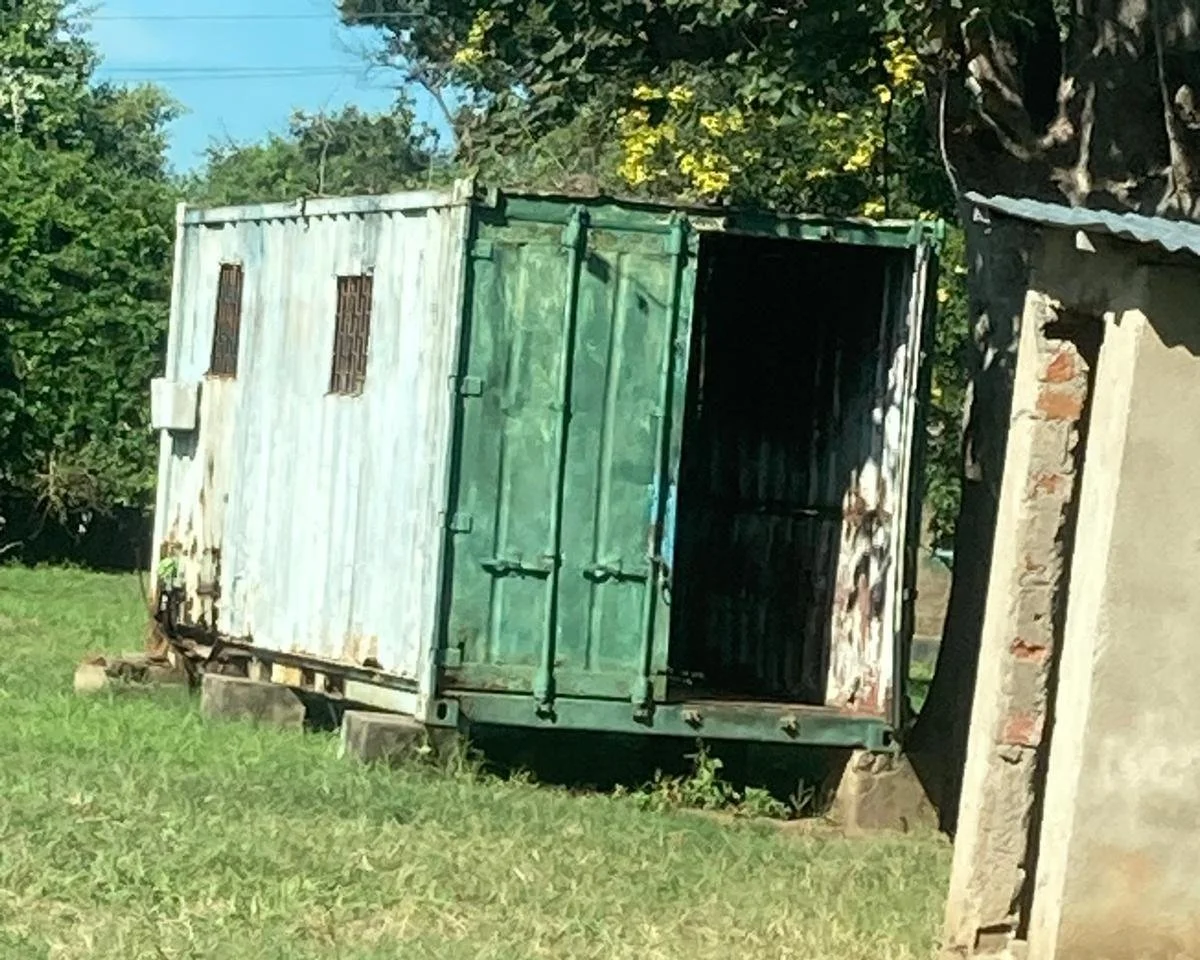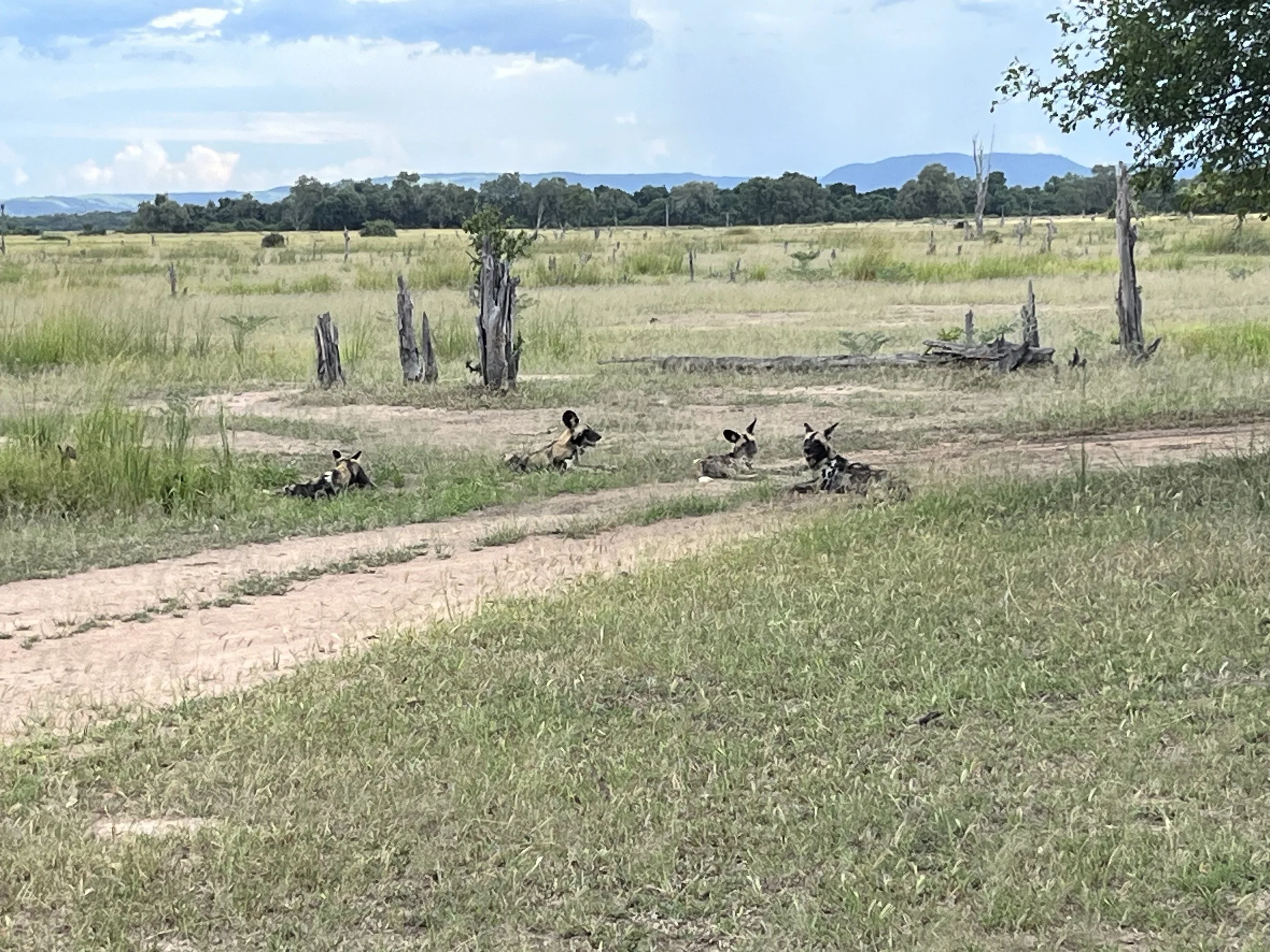This Side or That Side?
One of the things I love about Zambians is their turn of phrase. If you were to find yourself lost on the single stretch of tarmac through Mfuwe, South Luangwa – as my Husband is likely to do – and ask a Zambian for directions, the advice would be that you should go ‘This side’ or ‘That side’.
This Side of what, exactly, he’d ask? Where does This Side end, and where does That Side begin? Applying our western sense of place is futile in the bush.
Upon meeting someone new I might ask ‘Where do you live?’
‘That side’ would be the reply, with a wave of an arm.
‘Oh’ I’d say, nodding blankly, waiting for further details that never come.
‘Where’s the bakery?’
‘This Side’.
Where have you been? I might ask a late employee.
‘Oh, I went That Side’. Enough said.
After a few months of trying to memorize the shops and landmarks along the single road through Mfuwe, I realised how quickly things change here. Shops suddenly disappear, abandoned through death or hard times or a better opportunity elsewhere. The hardware store spilling colourful buckets and brooms onto the roadside that was your marker for turning off the tarmac is no longer there. The bushes and grasses grow so rapidly in the rainy season that whole buildings get obscured almost overnight. And when it’s hot and dry, the vegetation shrinks back to nothing, or it’s deliberately burnt to a crisp.
It was quite alarming in our first year, around May and June, to see so many fires. The local people all seemed to be remarkably enthusiastic about setting fire to their front yards, to the fields, the roadside bushes – anything and everything seemed to be fair game. When there is no prospect of rain for another five months, this seemed like an extraordinarily insane thing to do. Why doesn’t anyone do anything, we wondered? Where are the police? Where’s the fire brigade?
There is no fire brigade in Mfuwe – that’s as daft an idea as thinking there might be a coastguard in this land-locked country. And the police? Their attention seems to depend on two things: whether they have enough fuel for their vehicles and whether it’s knocking off time. If you want the local law enforcement officers to vacate their office you will have to pay for their fuel. There and back. And, because they don’t have any fuel, you’ll be required to deliver it directly to their vehicle before they’ll slide into the driving seat. And it’s probably not a good idea to call them during lunchtime.
It’s not the fault of the individual officers. They do their best with beaten-up vehicles; smashed windscreens, knackered suspension, bald tyres and sometimes, not even doors. No need for the Police to set an example of good vehicle maintenance here. It seems perfectly acceptable for them to pull you over for not wearing your seatbelt, when the vehicle they’ve just stepped out of wouldn’t look out of place in a scrap yard. The local jail is a rusting shipping container; heaven forbid you should have to spend 24 hours in there. All of which is why, when my Husband passed out at the wheel and went careering through the bush like an unconscious Indiana Jones, we decided not to bother the police.
Containing criminals in Mfuwe…
My Husband had just left the house one afternoon when the watchman disturbed my peaceful snooze on the verandah by shouting ‘Elephant, Elephant!’.
I looked up, interested, and then watched as he dashed off down the driveway. What on earth was he doing? Who in their right mind would run after an elephant?
I waited. A few moments later he came charging back, emergency in his voice. ‘Accident! Accident! That Side!’. The penny dropped. He hadn’t said ‘elephant’ at all. I set off after him as fast as the heat and my flip-flops would allow.
Rounding the corner at the end of the drive, I could see down the track, generously lined with verdant bushes and trees either side. Nothing untoward so far. I followed the watchman to a spot off the track that looked like an elephant trail, judging by the broken branches and flattened grass. He turned to me, arms raised in disbelief.
‘He was just there. Your Husband. He’s gone!’
A closer inspection of the terrain revealed remnants of the car – a bumper, a wing mirror, unidentifiable bits of plastic. With a sigh, I gathered them up and returned to the house to make a phone call.
It turns out that as my Husband pulled out of the drive he realised the chickens he was transporting to his friend’s house were trying to make a break for it. He hadn’t properly closed the rear door. So he got out, closed the door, and caught his finger in the catch. Setting off again, his finger throbbing, he glanced down and saw blood. And then he fainted.
The car, an automatic, continued for some distance, careering off the dirt road into virgin bush, my Husband face down on the steering wheel with startled chickens crapping all over the seats. Eventually, the dense bush dragged the vehicle to a halt and my Husband came to. Embarrassed when the watchman arrived at the scene, my beloved simply reversed back to the track and drove away as soon as the watchman left to alert me, unaware that his car was now considerably lighter.
When I eventually caught up with my Husband, and found that he was ok, I threatened him with bodily harm if he was ever that stupid again. And of course, we should have reported the incident.
The limitations on public services like the police are a symptom of a Government struggling to generate enough revenue. Local Government is woefully under-developed and not a promising route for community taxation. How can you tax subsistence farmers enough to provide a local police force? Or to mend potholes, or provide a fire service? You simply cannot.
The fires, it turns out, serve several purposes. It’s a quick and easy way to clear the overgrown bush from the roadside, making it safer for pedestrians and drivers; the pedestrians can now leap off the road as a truck skims their ankles, and at least see the ditch before they land in it. Any mice or other small mammals or reptiles that scurry away from the flames may be caught and put in the pot. Clearing an area of snakes –venomous or harmless, sadly - is also a motivation. And it’s also a wildfire preventative measure to remove long grass before the dry season.
For this reason, the wardens also set great swathes of the South Luangwa National Park alight. One afternoon I bounced along in the car for several kilometres beside blackened soil and smoking trees. This is an area popular for walking safaris, I thought. I would be fuming if I’d paid thousands of dollars for a walking safari and found myself traipsing about in the sooty remains of a pristine wilderness. But what do I know? South Luangwa is an incredibly successful national park, famous for its abundance of species, so there must be a method in this apparent madness. Some plant species rely on being burnt to re-germinate, but what of all the small mammals, insects and birds that get trapped or smoked out?
The presence of the endangered African Painted Dogs in South Luangwa National Park is one indicator of a healthy ecosystem in the valley
As I’ve seen the year unfold – the hot dry season (Aug – Nov), the wet rainy season (Nov – Apr) and the cool dry season (May-Aug)– I learn something new through each cycle of nature. After twelve months, we no longer get disorientated on the main road and we know a little more about local customs. I’m less quick to judge, because I realise there’s a reason behind everything, even if, on the face of it, there’s no sense at all. I’m even beginning to appreciate the simplicity of being This Side or That Side.
And yes, I’m also learning more about how my Husband responds to the sight of blood.

